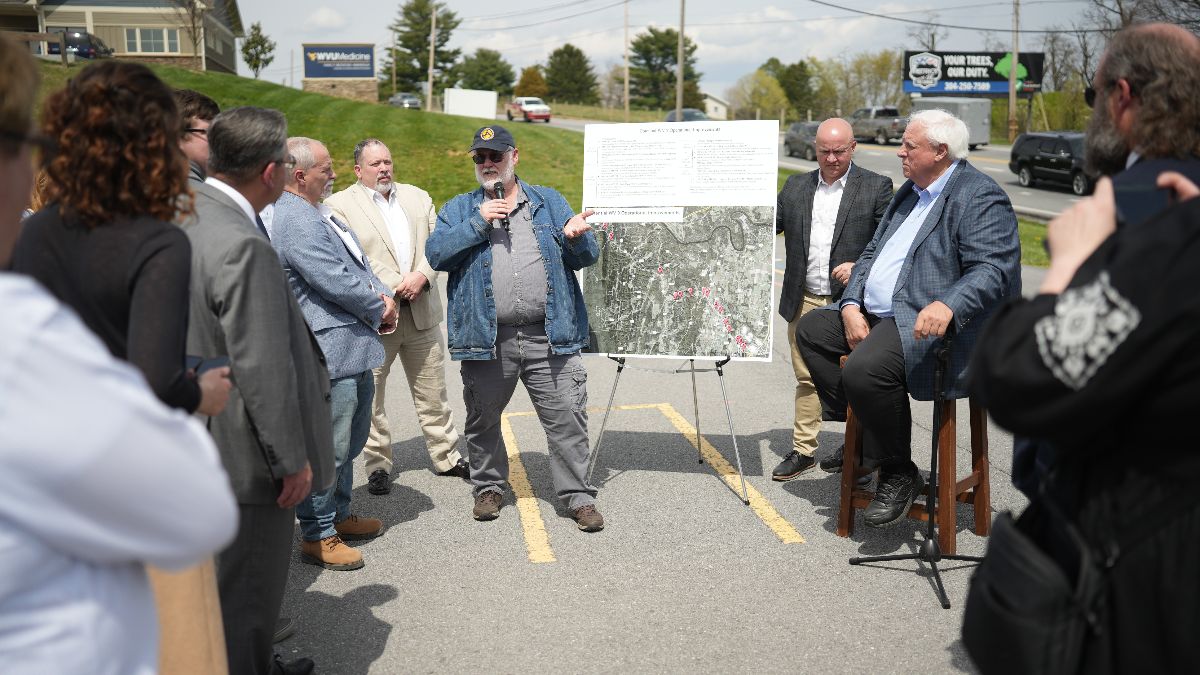In recent years, West Virginia’s Eastern Panhandle has experienced population growth and undertaken new development projects. While this provides economic benefit, it also creates a new problem: traffic.
West Virginia Route 9, which stretches from Morgan County to Jefferson County, has become increasingly prone to traffic congestion, Gov. Jim Justice said Tuesday.
Justice — alongside West Virginia Department of Transportation (WVDOT) Secretary Jimmy Wriston and West Virginia Senate President Craig Blair, R-Berkeley — visited Martinsburg Tuesday to unveil a new WVDOT project that aims to improve travel on the highway.
“It’s a growing area,” Wriston said. “We got some inefficiencies in the way traffic moves through the area on Route 9, and we want to address some of those things.”
The fifteen-step project includes adding new turn lanes, improving major intersections and enhancing lane signage over 10 to 15 miles of the highway in Berkeley County northwest of Martinsburg.
Currently, an average of 24,300 vehicles travel on portions of the highway each day, according to a press release from Justice’s office. Crash rates on the highway are roughly double the state average, the release said.
Blair said that improving transportation infrastructure in the Eastern Panhandle is important to sustain local growth.
“It’s about getting the work done,” he said. “It’s about stepping forward and getting things right.”
Justice echoed Blair’s sentiments, and said infrastructure plays an important role in attracting new residents.
“If we’re wanting to recruit more and more and more folks here and all of a sudden they’re sitting in traffic all day long … are they really going to come?” he asked. “We have got to absolutely market ourselves.”
